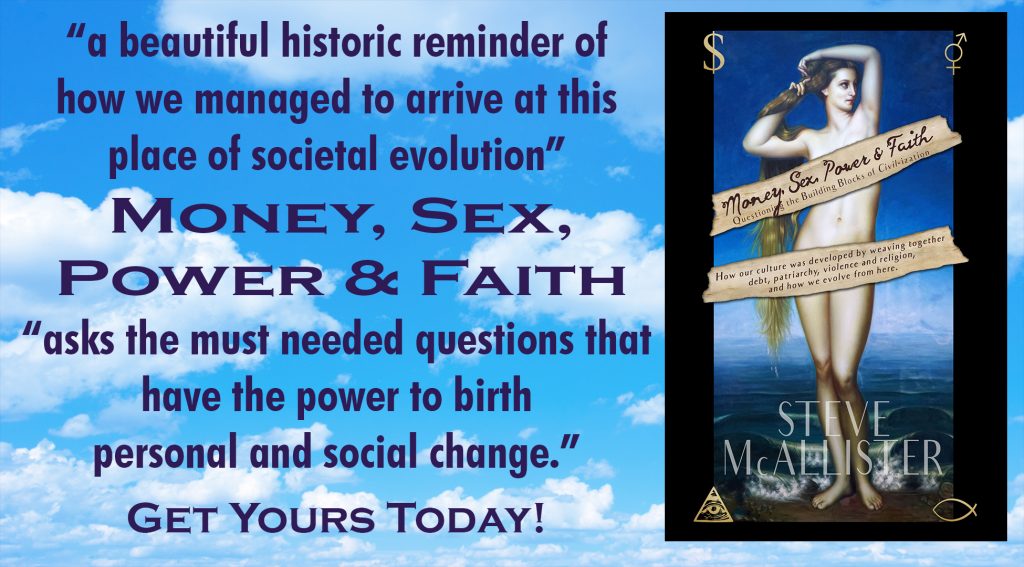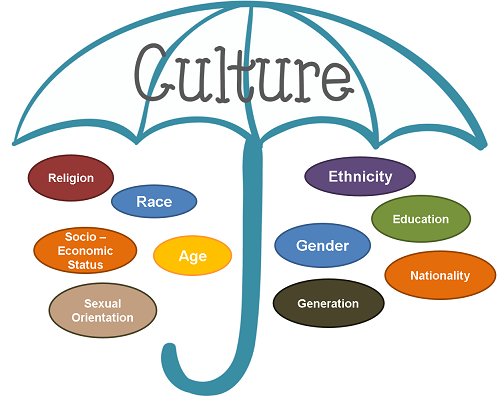The following is a chapter from Money, Sex, Power & Faith.
Order your copy in paperback or for Kindle!
“We seldom realize, for example that our most private thoughts and emotions are not actually our own. For we think in terms of languages and images which we did not invent, but which were given to us by our society.”
– Alan W. Watts
Let me tell you a story. It’s not the story of a single hero, nor a single journey, but more the story of our stories. It is the story of how our culture came to be, and how we can tell a new story in order to write the world we desire into existence.
It’s an interesting notion the word “culture” means both the collection of arts and ideas that accumulate to drive a society, as well as the cultivation of bacteria. Many of the cultural concepts we hold as sacrosanct are really nothing more than ideas, yet they have blossomed in such a way that we are generally indisposed to even questioning them. Yet just as a biological culture is cultivated in artificial conditions to produce specific results, so is societal culture refined by those who propagate the ideas, and if we are to be a conscious species, it is our responsibility to revisit those ideas and refine them as necessary.
As Yuval Noah Harari puts it in Sapiens: A Brief History of Humankind, “Ever more scholars see cultures as a kind of mental infection or parasite, with humans as its unwitting host. Organic parasites, such as viruses, live inside the body of their hosts. They multiply and spread from one host to the other, feeding off their hosts, weakening them, and sometimes even killing them. As long as the hosts live long enough to pass along the parasite, it cares little about the condition of its host. In just this fashion, cultural ideas live inside the minds of humans. They multiply and spread from one host to another, occasionally weakening the hosts and sometimes even killing them. A cultural idea – such as belief in a Christian heaven above the clouds or a Communist paradise here on earth – can compel a human to dedicate his or her life to spreading that idea, even at the price of death. The human dies, but the idea spreads.”
Richard Dawkins shared a similar notion in his 1976 book The Selfish Gene when he coined the word “meme” as one of these cultural ideas that gets passed on. “When you plant a fertile meme in my mind you literally parasitize my brain,” Dawkins wrote, “turning it into a vehicle for the meme’s propagation in just the way a virus may parasitize the genetic mechanism of a host cell.”
The sharing of ideas isn’t always a necessarily bad thing, of course, as memes have been very helpful in organizing humanity and helping us to progress. However, there certainly are memes working to our detriment, and there are those who use them against us.
Throughout the cultivation of this culture, our reality has been subject to the myths we hold and share, whether they be stories of our heroes or the acceptance of mainstream methodologies. “The rise and fall of civilizations in the long, broad course of history can be seen to have been largely a function of the integrity and cogency of their supporting canons of myth,” says Joseph Campbell, “for not authority but aspiration is the motivator, builder, and transformer of civilization.”
Ultimately, our culture is what we make of it. It is comprised of our arts, our music, our beliefs, and the way we operate in concert with the rest of the world. Although many of these things are given to us, our culture is defined by what we decide to embrace, and the art, music, beliefs, and activities we produce ourselves.
Over the course of the last 10,000 years we know as human history, we have cultivated our culture through the development and proliferation of money, the delineation of gender and revocation of individual sexual rights, the concentration of political power and production of physical power, and the harnessing of faith through the indoctrination of faith-based systems. As the ideas about these aspects of our civilization that have been passed along, we have developed the world we know, and at the tail end of the Information Revolution, we are given the fortuitous opportunity to revisit these ideas, and change them accordingly to develop the world we truly want.
May we find the courage to cultivate our culture consciously, and aspire to be more than a species separated from Nature, one another, and the Divine.
Order your copy of Money, Sex, Power & Faith today!


